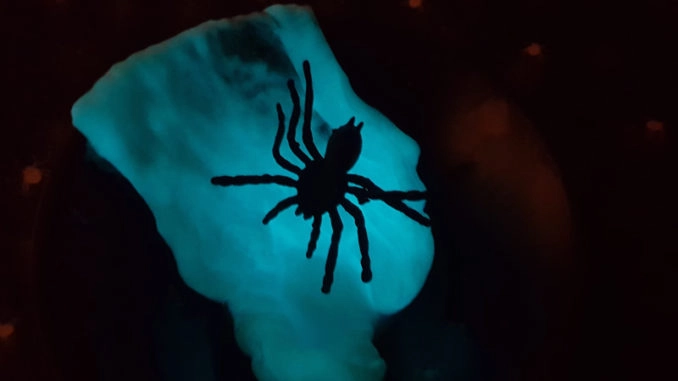
Make your glow-in-the dark slime


Halloween is the right time to do disgusting, filthy … but also surprising things.
On this occasion, Curiokids suggests you to make glow-in-the-dark slime in complete safety.
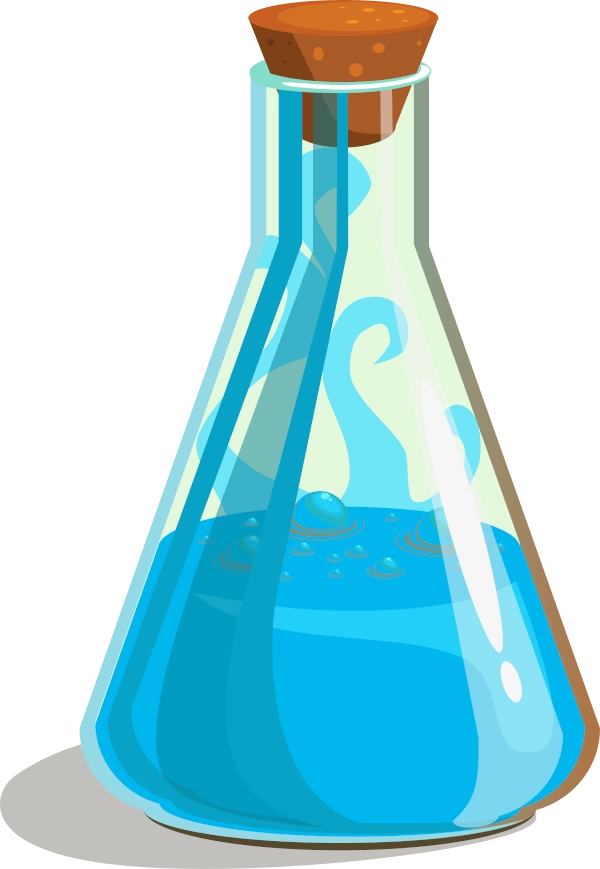



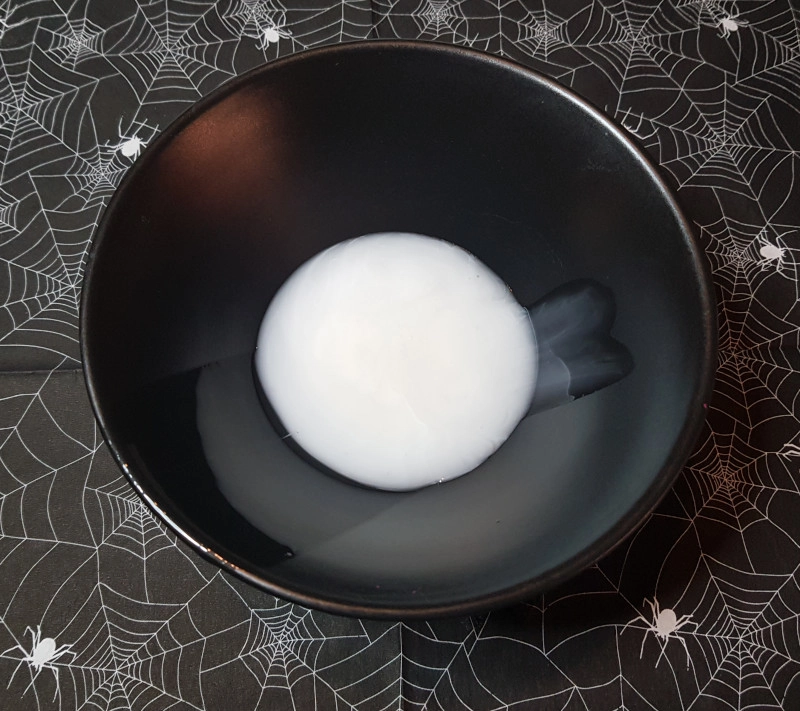

Pour the white school glue into your bowl.
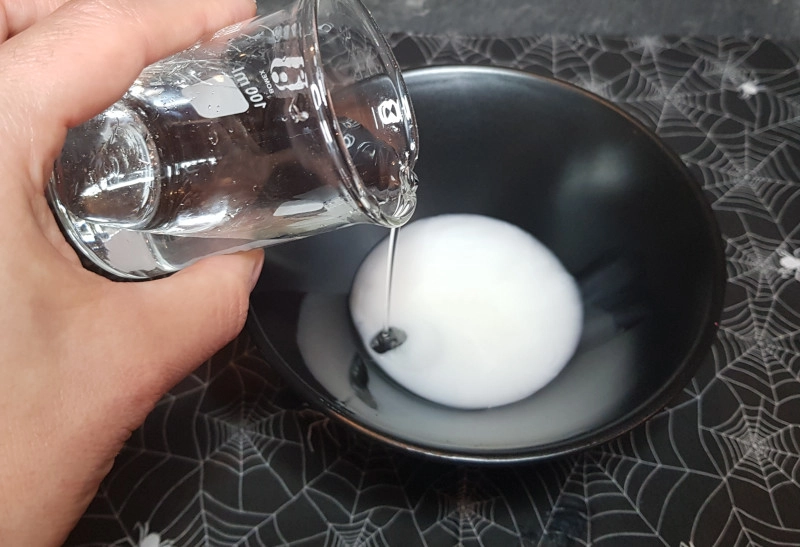

Add water and mix well.
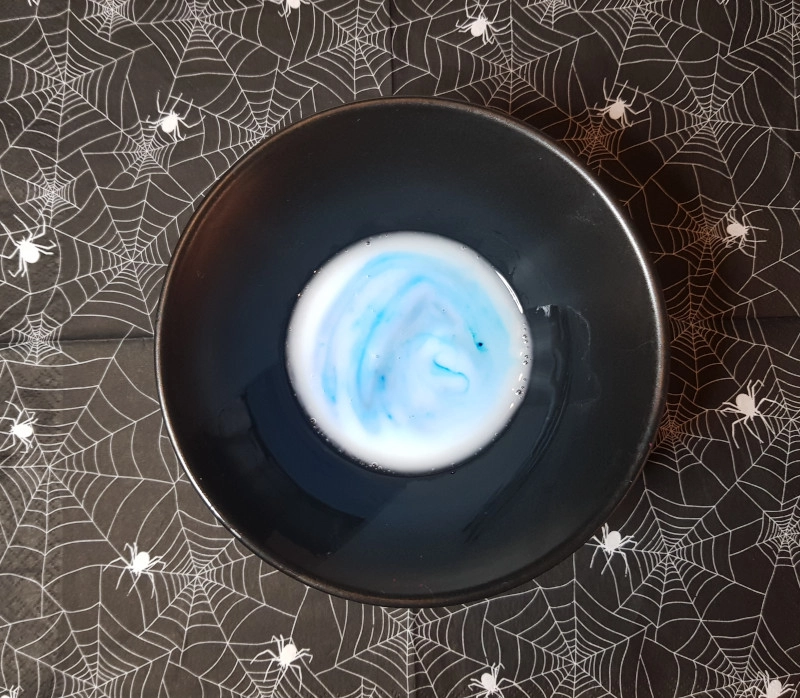

Add a little food coloring, just enough to tint your mixture.
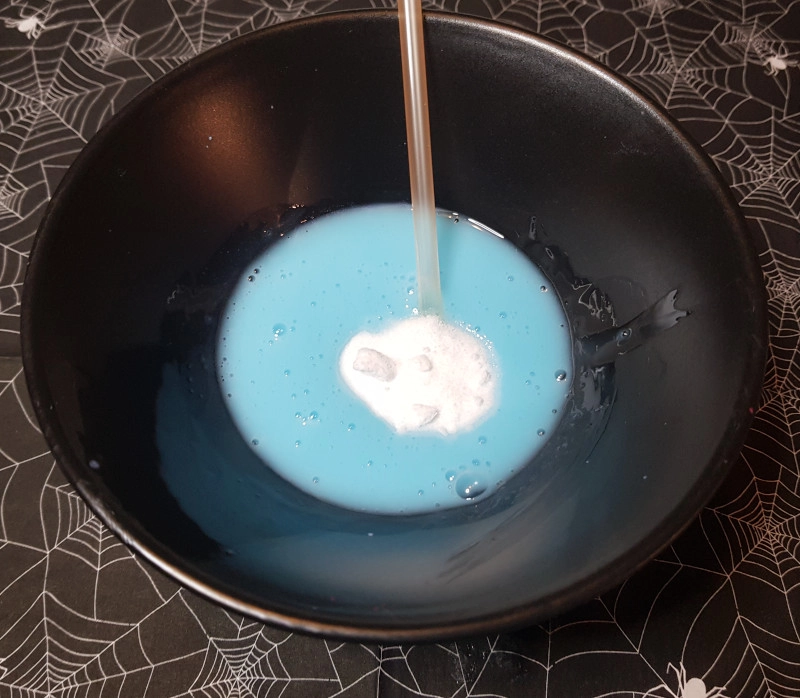

Now add the 1/2 tablespoon of baking soda and mix to obtain a perfectly homogeneous preparation.
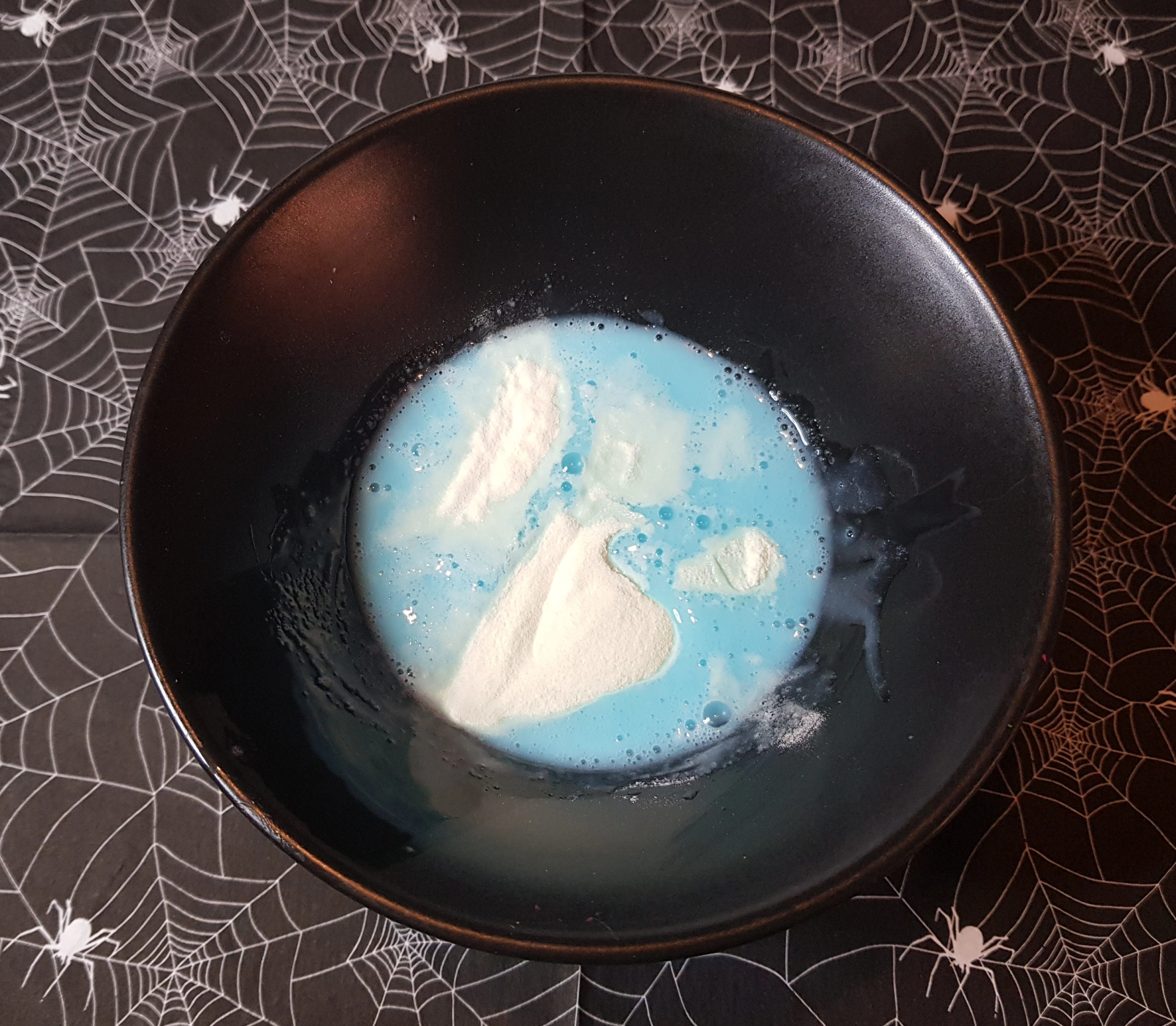

Add a tablespoon of glow-in-the-dark powder or the equivalent of glow-in-the-dark paint. Mix well.
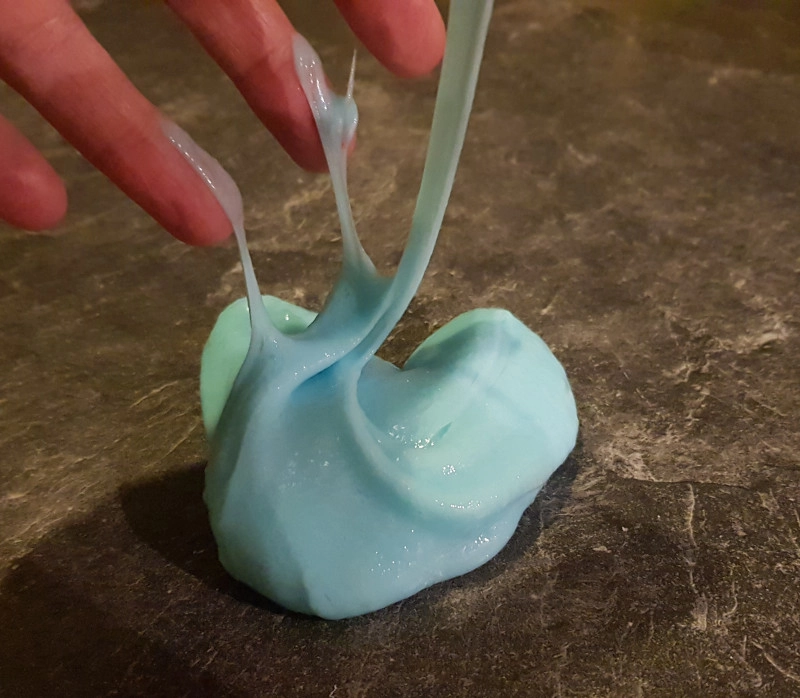

Now you will make the slime. Add 1/2 teaspoon boric acid eye solution (or contact lens solution). The slime will form instantly.
Knead your mixture with your fingers… you will obtain a quality slime very quickly.

Turn off the light and watch! Wow, it glows in the dark.
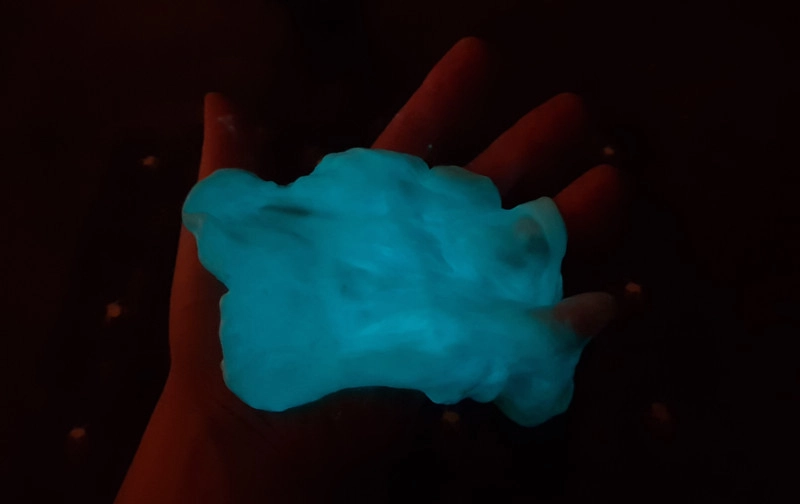
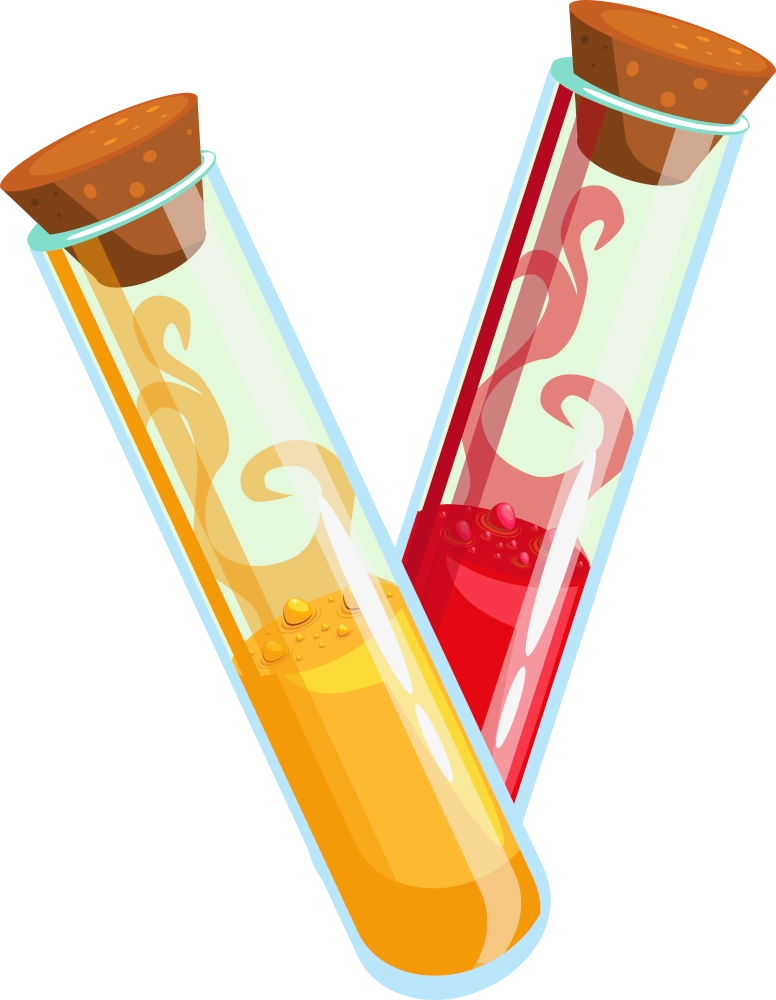
Slime is a pretty amazing material. If you stretch it gently, you will get long filaments. But if you stretch it with a sharp blow, it immediately breaks like a breadstick.
The question is whether slime is a liquid or a solid.
Indeed, when you throw it on a table, it bounces back like a magic ball, keeping its shape and size.
But if you drop it into a container, it takes on the shape of the container, like water in a glass.
In reality, slime is what is called a non-Newtonian fluid.

Slime sometimes behaves like a liquid, sometimes like a solid. If you put enough pressure on it, its viscosity increases to the point that it behaves like a solid. If you don’t put any pressure on it, it will flow like a liquid.
Non Newtonian fluids in nature
Lava, honey, and ketchup are all examples of non-Newtonian liquids like slime.
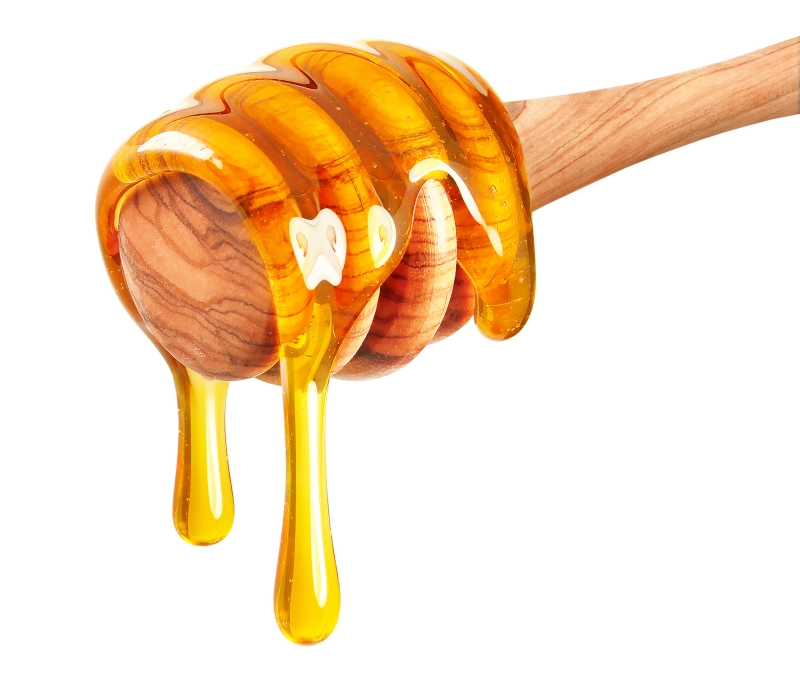
Test different phosphorescent pigments to see which one will glow the brightest in the dark.
The reaction between vinegar and baking soda can be used to degrease greasy surfaces. It is a more ecological solution than the products you can find in the supermarket.
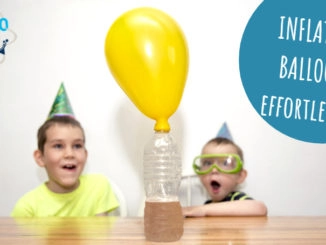
Here is a great and visual experience for you to discover the secret world of bacteria. They are very useful to us and we use them in many cooking recipes, for example. Watch how bacteria turn sugar into alcohol and carbon dioxide using a simple soda bottle and a balloon.
It’s a great way to identify which drinks have sugar and which doesn’t. […]
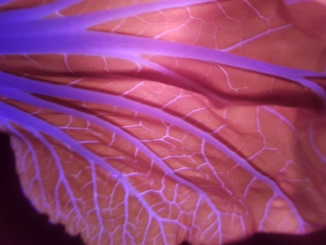
The leaves of trees are green in daylight. It is thanks to chlorophyll, an important molecule which is involved in photosynthesis to convert carbon dioxide into oxygen. But under black light, chlorophyll is red. A phenomenon linked to fluorescence. […]
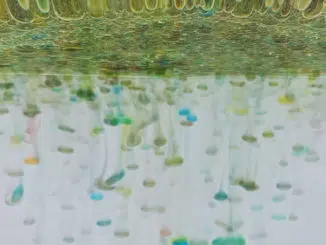
A colorful rain in a glass of water, can you believe it? Here is a […]
Copyright © 2023 | CurioKids.net - All rights reserved